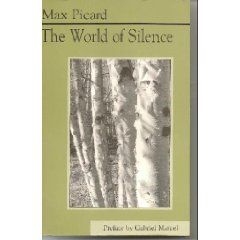Feature Essay

The Catholic Economy
Silent Spain, slumbering Spain, solitary Spain. Max Picard, possibly the best writer ever of thin thick books, loved old Spain. Writing in the mid-twentieth century, before Madrid became a blare of horns and Toledo a blast of loud lights, Picard noted that Spain is considered backward because it did not “join in the universal noise and mobility of the modern age by industrializing its economy.”
Much of the same held true for other traditionally-Catholic countries: Portugal, Ireland, Mexico, large swaths of Italy, pockets of peasant France. It led the sociologist Max Weber to conclude that capitalism and modern industry is a fruit of Protestantism and the grim Calvinistic work ethic that eschews everything pleasurable for everything sweaty. Such a view gains credibility when combined with the general Protestant worldview that sharply distinguishes the secular world from the religious world, thereby carving out a huge space in the modern world for nose-to-the-grindstone effort detached from holiness.
Weber was wrong about the advent of capitalism. The beginnings of the modern free market can be found in the High Middle Ages,

the eleventh to thirteenth centuries, when trade and finance flourished, living standards rose quickly, and the foundations of commercial capitalism developed. The Renaissance Italian city-states were capitalistic. In fact, they started the financial techniques such as double-entry bookkeeping that became the egg-headed two-by-fours of the Industrial Revolution. The Catholic city of Antwerp was the premier financial and commercial center in the sixteenth century.
Still, Weber had a point. There is a stark difference in the mentality of the Catholic and the mentality of the Calvinist when it comes to work. Protestants have tended to glorify the mere exertion of labor. Their view of human depravity and Original Sin have made them distrustful of our natural inclination to enjoy pleasant things . . . and trustful of things not so pleasant, like hard work.
Contrast this with the traditional Catholic worldview. In the words of economist Emil Kauder, in his titillatingly-entitled book A History of Marginal Utility Theory:
Instead of work, moderate pleasure-seeking and happiness form the center of economic actions, according to Aristotelian and Thomistic philosophy. A certain balanced hedonism is an integrated part of the Aristotelian theory of the good life. If pleasure in a moderate form is the purpose of economics, then following the Aristotelian concept of the final cause, all principles of economics including valuation must be derived from this goal. In this pattern of Aristotelian and Thomistic thinking, valuation has the function of showing how much pleasure can be derived from economic goods.
This fundamental difference between the traditional Catholic and traditional Protestant worldview can be summed up by each side's emphasis: Catholics emphasize leisure first. Protestants emphasize work first. Neither denies the other part, but the entire mental landscape of the two camps tilts differently.
And the resulting worldly landscape tilts significantly differently. The landscape differences are seen in the office: too many hours, too much stress, too many workaholics. But perhaps more troubling, the difference is seen in the American response to their free time.
Too often, Americans use free time for grim self-improvement: retreats, working out, more classes. Some of that is good, no doubt, but self-improvement all the time is no self-improvement at all. Americans often lack a proper understanding of leisure. Leisure is good because it does nothing, it's something higher because it's not focused on anything lower, it's something noble because it's not filled with self-importance. In America, leisure is dedicated to resting us up for work. That's perverse. That's like dedicating beer drinking to sobriety (“I'm drinking now, so I can be a better sober person later”).
In a Catholic culture, leisure would come first and work would be leavened with the ultimate goal of life: sanctity and enjoyment of God's gift of life.
